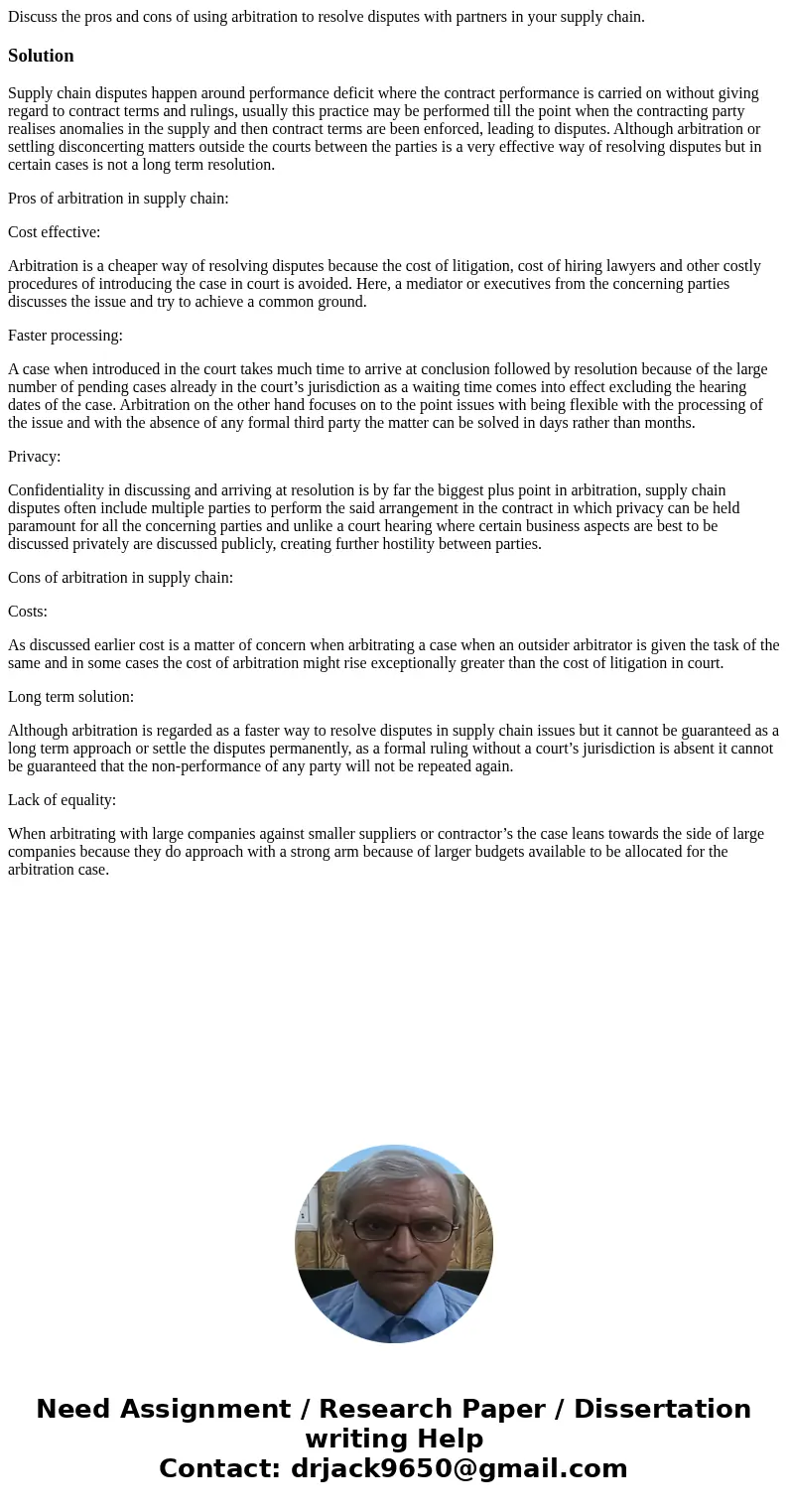Discuss the pros and cons of using arbitration to resolve di
Discuss the pros and cons of using arbitration to resolve disputes with partners in your supply chain.
Solution
Supply chain disputes happen around performance deficit where the contract performance is carried on without giving regard to contract terms and rulings, usually this practice may be performed till the point when the contracting party realises anomalies in the supply and then contract terms are been enforced, leading to disputes. Although arbitration or settling disconcerting matters outside the courts between the parties is a very effective way of resolving disputes but in certain cases is not a long term resolution.
Pros of arbitration in supply chain:
Cost effective:
Arbitration is a cheaper way of resolving disputes because the cost of litigation, cost of hiring lawyers and other costly procedures of introducing the case in court is avoided. Here, a mediator or executives from the concerning parties discusses the issue and try to achieve a common ground.
Faster processing:
A case when introduced in the court takes much time to arrive at conclusion followed by resolution because of the large number of pending cases already in the court’s jurisdiction as a waiting time comes into effect excluding the hearing dates of the case. Arbitration on the other hand focuses on to the point issues with being flexible with the processing of the issue and with the absence of any formal third party the matter can be solved in days rather than months.
Privacy:
Confidentiality in discussing and arriving at resolution is by far the biggest plus point in arbitration, supply chain disputes often include multiple parties to perform the said arrangement in the contract in which privacy can be held paramount for all the concerning parties and unlike a court hearing where certain business aspects are best to be discussed privately are discussed publicly, creating further hostility between parties.
Cons of arbitration in supply chain:
Costs:
As discussed earlier cost is a matter of concern when arbitrating a case when an outsider arbitrator is given the task of the same and in some cases the cost of arbitration might rise exceptionally greater than the cost of litigation in court.
Long term solution:
Although arbitration is regarded as a faster way to resolve disputes in supply chain issues but it cannot be guaranteed as a long term approach or settle the disputes permanently, as a formal ruling without a court’s jurisdiction is absent it cannot be guaranteed that the non-performance of any party will not be repeated again.
Lack of equality:
When arbitrating with large companies against smaller suppliers or contractor’s the case leans towards the side of large companies because they do approach with a strong arm because of larger budgets available to be allocated for the arbitration case.

 Homework Sourse
Homework Sourse